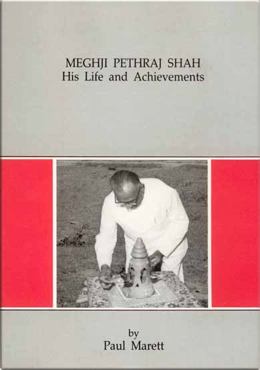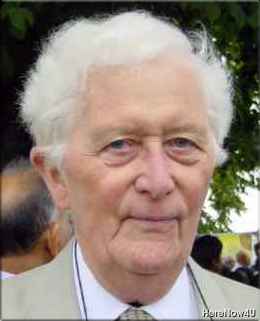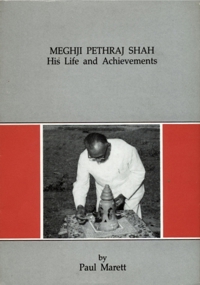
PREFACE
(From the original Gujarati biography, 1975.)
The expression, 'the modernisation of society', has become very popular. One of the reasons for this is that the twentieth century has witnessed two world wars, followed by revolutions in Russia and China. But, so far as India is concerned, our revered Gandhiji's extraordinary experiment of non-violent and constructive revolution is the reason.
Faced with the ancient beliefs of the people, their traditional ways and, above all, the imperialistic policy of demolition, he initiated in India a definite programme with a definite aim. The short period of thirty years in which he led the people of India in a constructive programme towards a new vitality, complete fearlessness and self-sufficiency, was indeed an euphoric age in the history of India. In 1918 nobody would have even imagined that in 1947 we would get independence. During the subsequent period of two and a half years, Sardar Vallabhbhai Patel, another Gujarati, gently broke down hundreds of walls in India and provided for the Indian people an opportunity to shape their future under one government, one constitution and one economy.
Behind this constructive revolution lay the united strength of the Congress, and the new aspirations in the minds of the suppressed and downtrodden people, and theirs was the main contribution. Two other forces were also at work and their contribution was not small. It is necessary to refer briefly to these two forces. One force was the nationalism of intellectual and rich Indians living in India and abroad, as well as of princes and others, and the other force was the cultural heritage passed on by the saints of India. Without these contributory factors Gandhiji would perhaps not have got the co-operation that he did. This book gives a glimpse of one such nationalist, intellectual and wealthy person of fame adorned with religion and culture. With these forces at work, Gandhiji could negate the erroneous view that class conflict is the only way by which exploited people can get free from exploitation, and with class co-operation he brought about a new self-consciousness in modern India.
This book will bring to mind three such errors:
- that every village is backward,
- that a man with no more than five years schooling is only an ordinary man,
- that every man seeking employment is helpless and dependent.
The life of Shri Meghjibhai removes all these three illusions. Meghjibhai's life provides an illustration of the dynamism of the people living in the Indian villages. We can see from this book what stirring dreams he had in his childhood, even though he lived in a village. According to our revered Gandhiji and Sardar Sahib a village is a mine of vitality. Meghjibhai' s life proves this. Similarly, this book shows that a village is a mine of insight. This great man of Dabasang showed in his life that a man of five or six years' schooling can reach great heights not just by virtue of his schooling but by virtue of his own inner insight, and that a village is also a great mine of nationalism and humanity.
Saurashtra was trained by those two great Gujaratis. They could not only fight but also win hearts. They were not unaware of modern currents and yet they were worshippers of India's antiquity. When our government was established it was a government of freedom fighters. But as soon as the struggle was over they applied themselves with zeal to the task of reconstruction. They welcomed and worshipped the vitality and insight of the Indian people and the nationalism and humanity of others, and they provided for Saurashtra an opportunity to build its own future in a free atmosphere. This was a modest experiment in the co-ordination and utilisation of all resources. This is what we call a change of values. It is the duty of the government to encourage this change of values, which will mean the enhancement of the change. But the real work was done by the people of India. Princes gave up their thrones. Landowners gave up their lands. Small craftsmen came forward with their skills. Leading industrialists and merchants also came forward. The government was convinced that there was humanity in all, and all that the government did was just co-ordination and enhancement.
It is from this viewpoint of value-change that I have been evaluating the life of the late Shri Meghjibhai. This book will inspire five things:
- the vitality of villages,
- the insight of villages,
- the daring spirit of villages,
- their nationalism,
- their humanity.
When farming was to be done on sands, he did it, and changed the desert sands into a green field. When he needed to earn crores of rupees he earned them, and when he needed to spend crores of rupees he spent them without any hesitation. But he spent them towards the establishment of new values.
It was as a result of this vitality, this insight, this humanity that in the first decade Saurashtra became aware of its original strength. As the respected Sardar paid India's debt to our revered Bapu by unifying Saurashtra, so Saurashtra paid its debt to the Sardar by merging in Gujarat.
As a result of the initiative which donors such as the late Meghjibhai took in Saurashtra, centres of social service are found everywhere in Saurashtra. In addition, Saurashtra spent another twenty crores of rupees over against the first five-year plan's expenditure of twenty crores. Both the leading figures and the ordinary people poured in loans and donations. This was the first state to invest a hundred rupees per head in development projects.
This book is a record of the achievement of a man of vision, and it is also a record of the dynamism, insight and humanity of a common man. Moreover, it contains an inspiring illustration of a great soul, of the kind necessary to the introduction of new values. We shall always need a Bhamasha. The Gandhi era produced Jamnalji and similar persons of trust. If their example is followed, this book gives hope that we shall be able to solve all our problems in this country without conflict.
Giving my homage to this great son of Saurashtra, I conclude this preface. In person he is no longer with us but the heritage that he has left will ever live amidst us.
Uchhrangarai N. Dhebar
(former Chief Minister of Saurashtra)
Bombay, 29th April 1975.
 Dr. Paul Marett
Dr. Paul Marett

